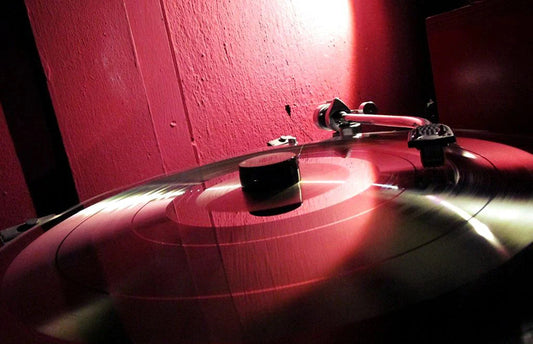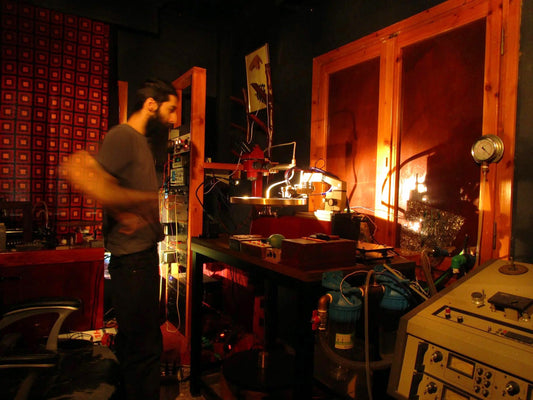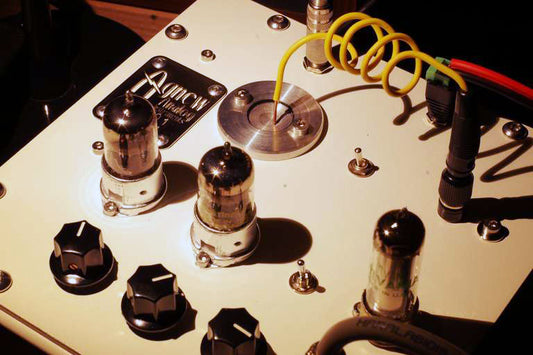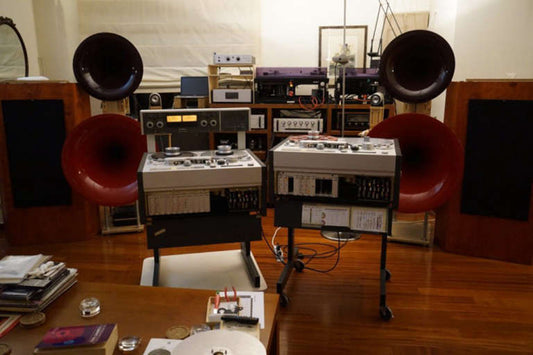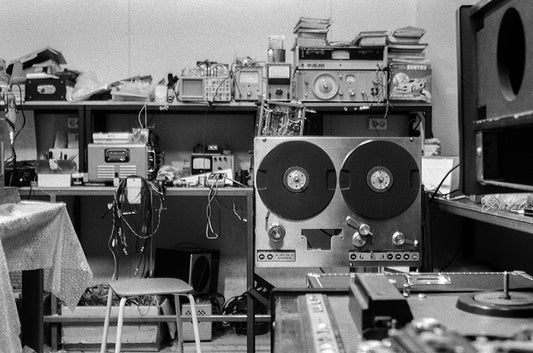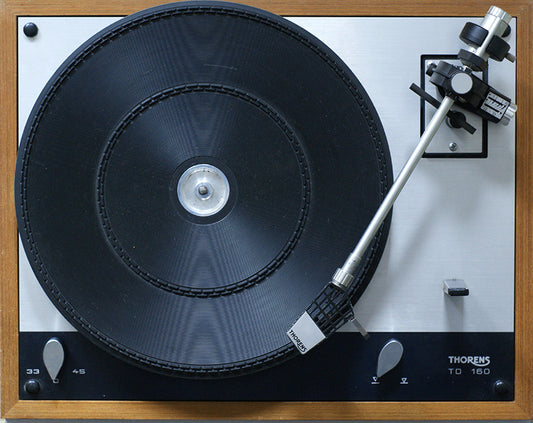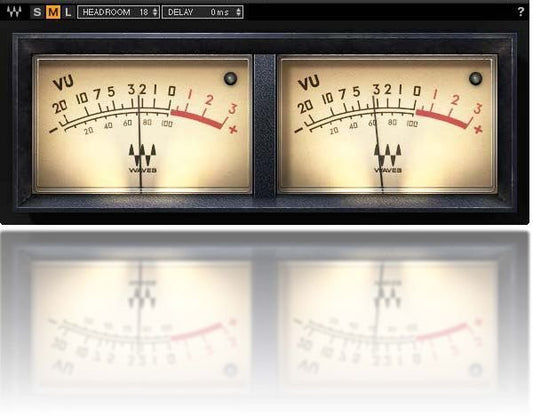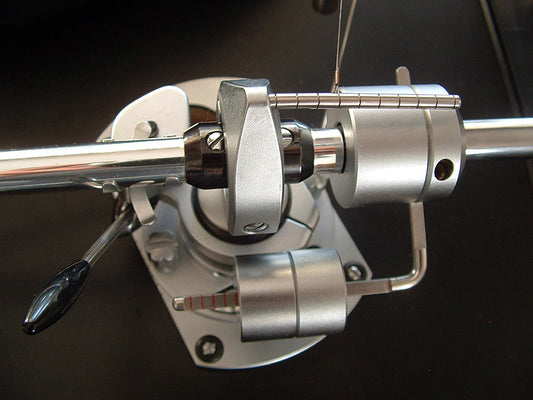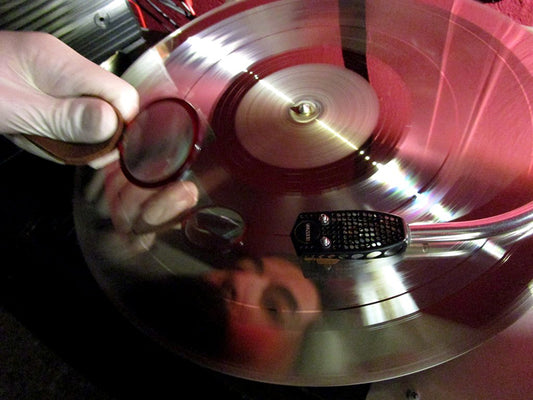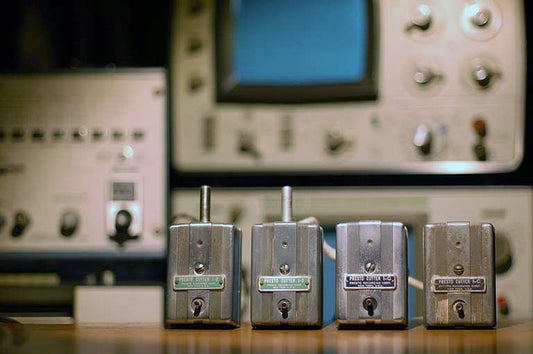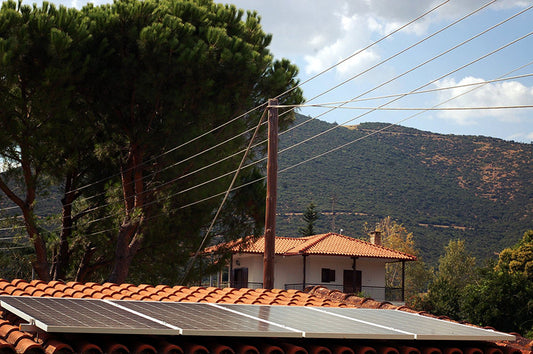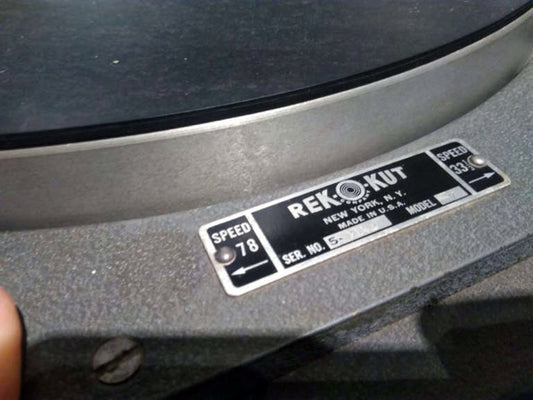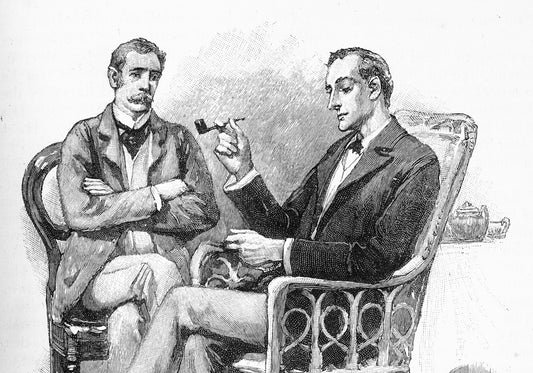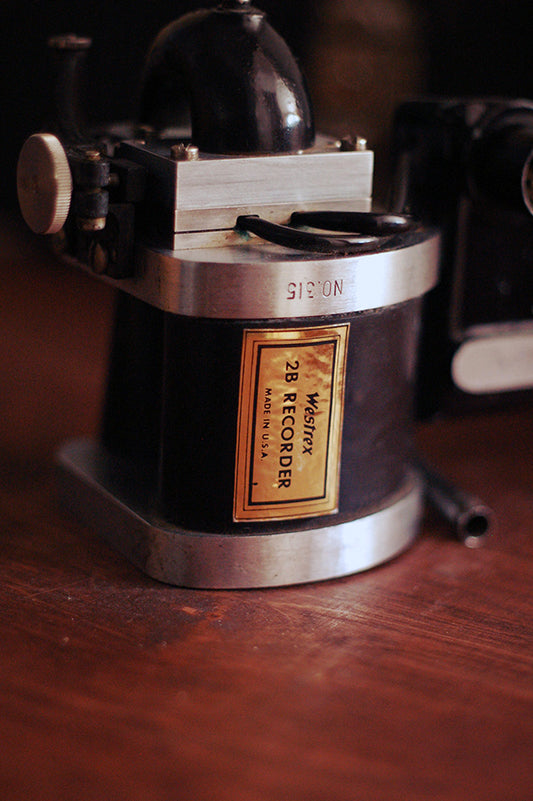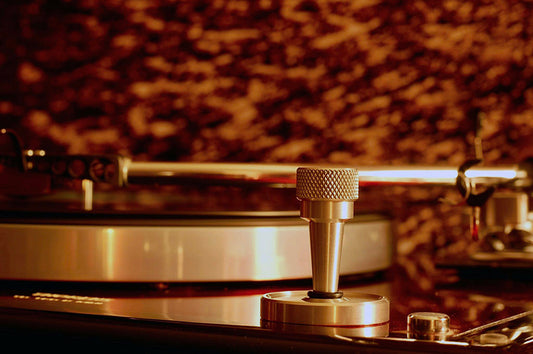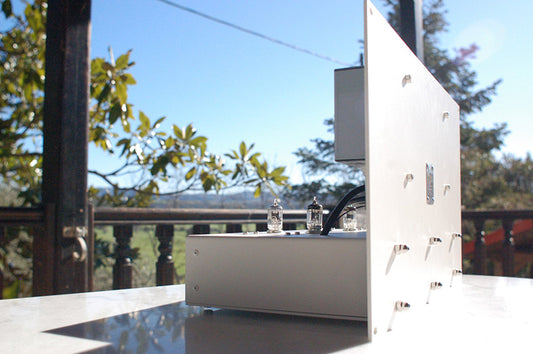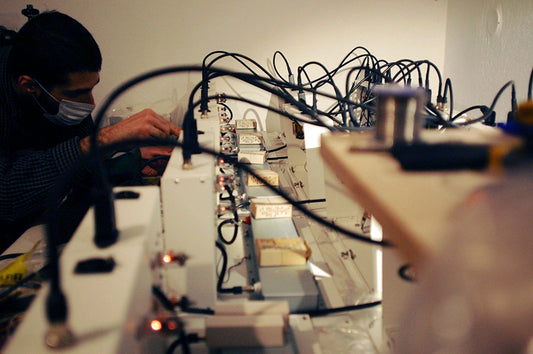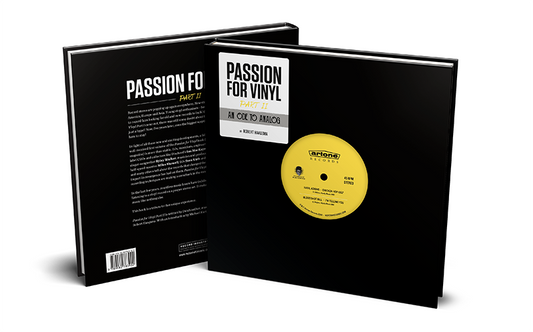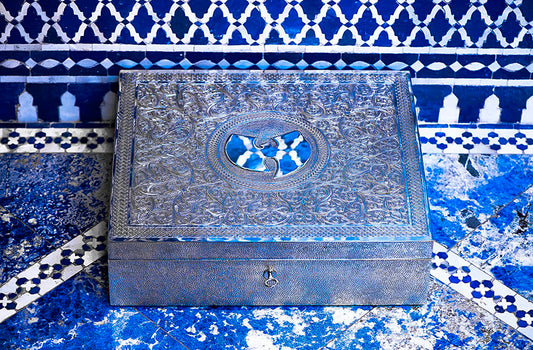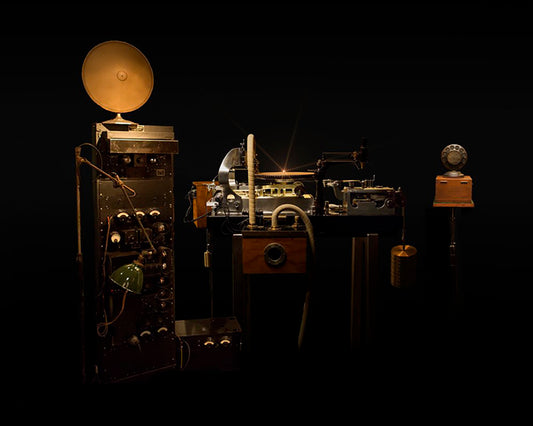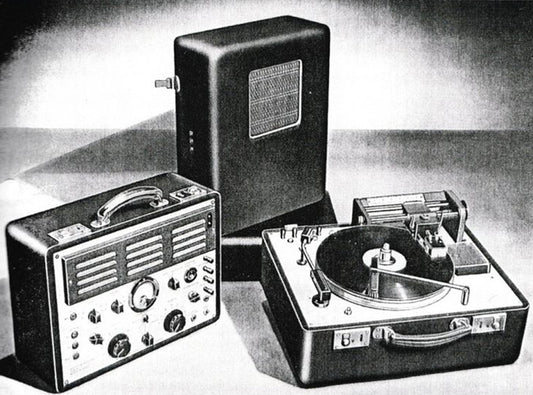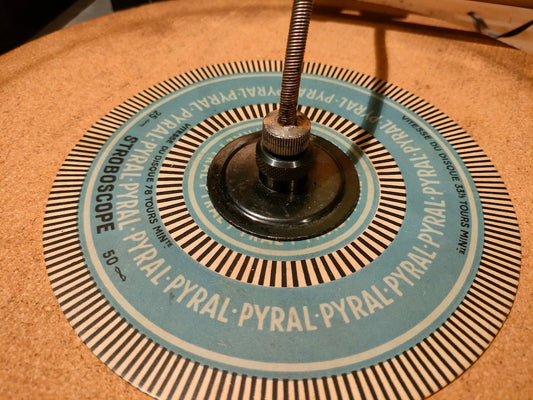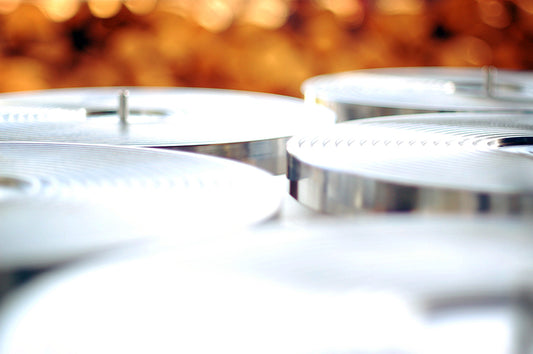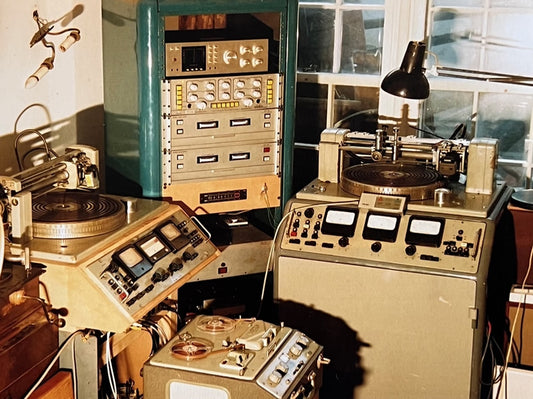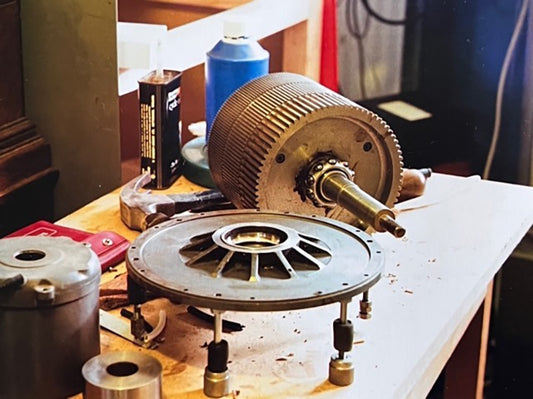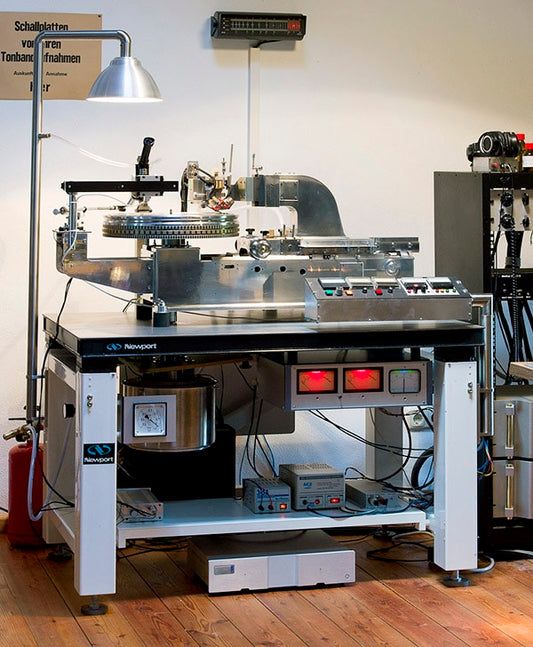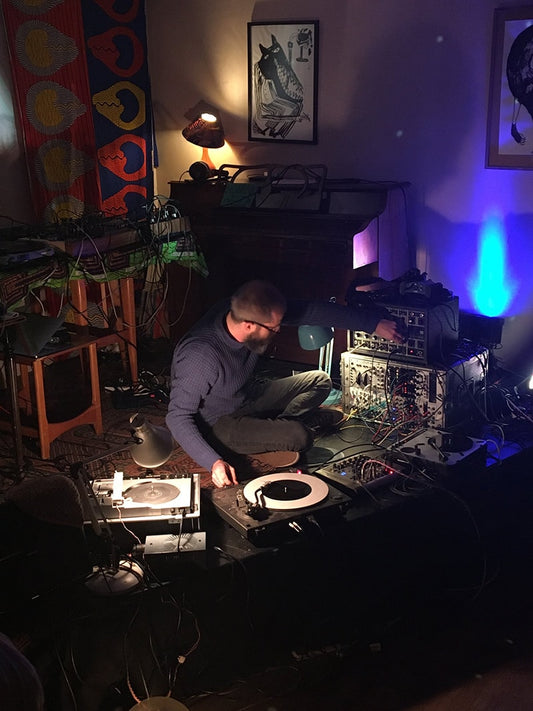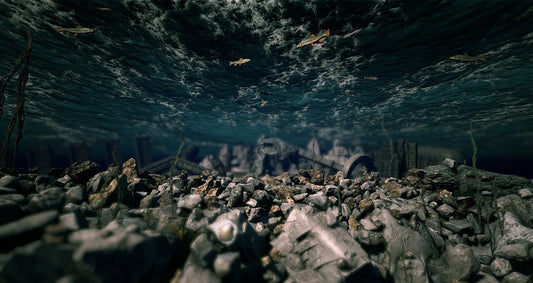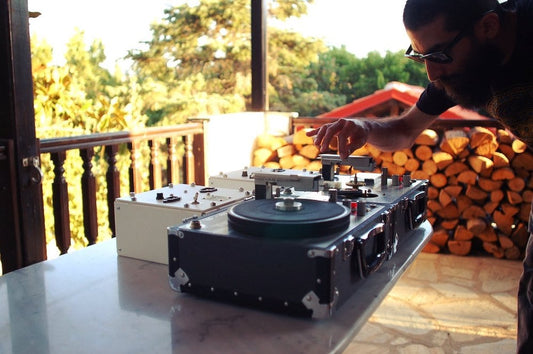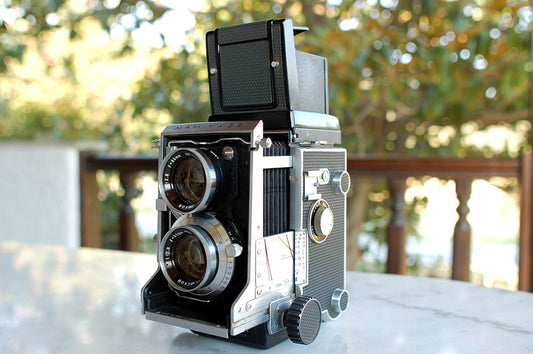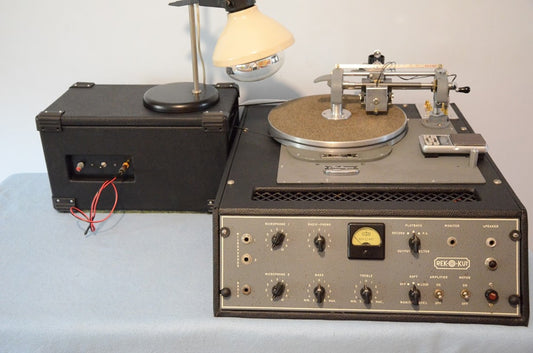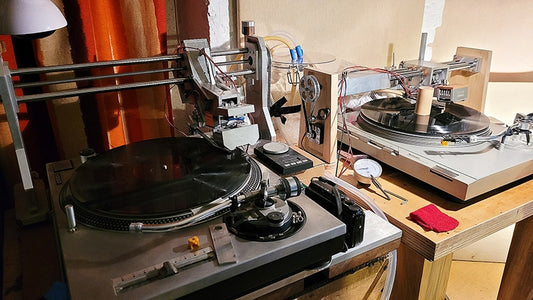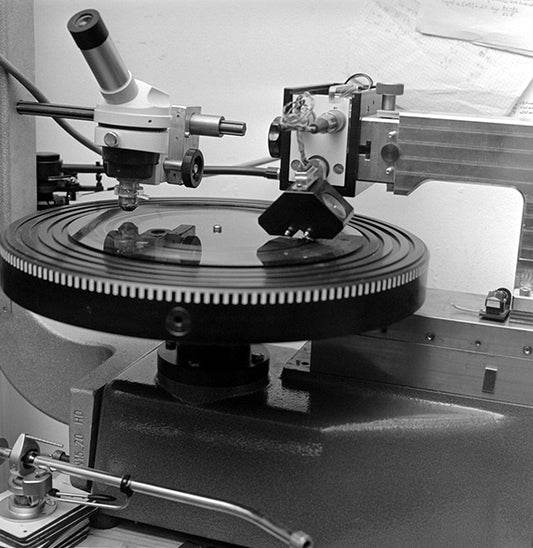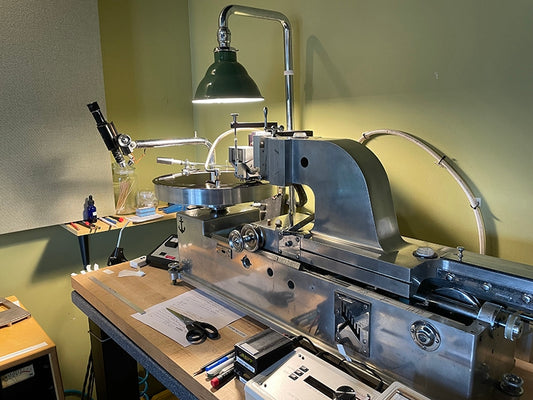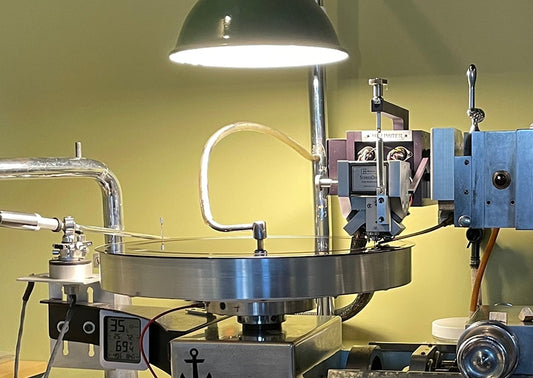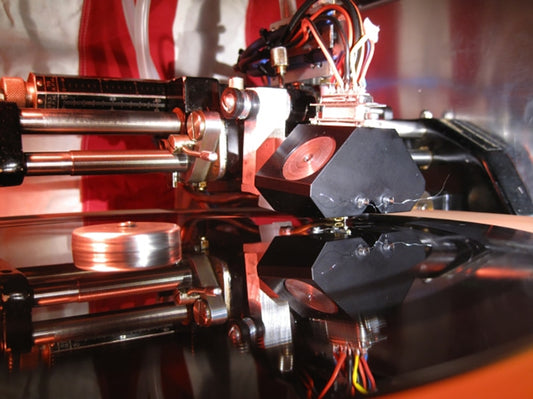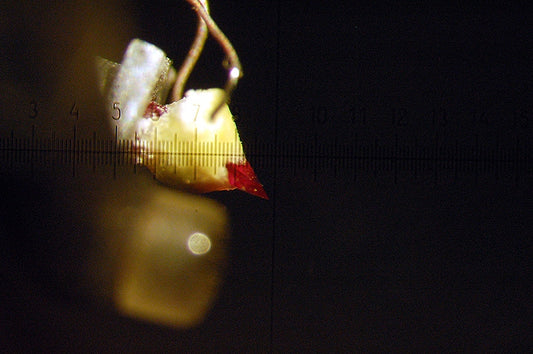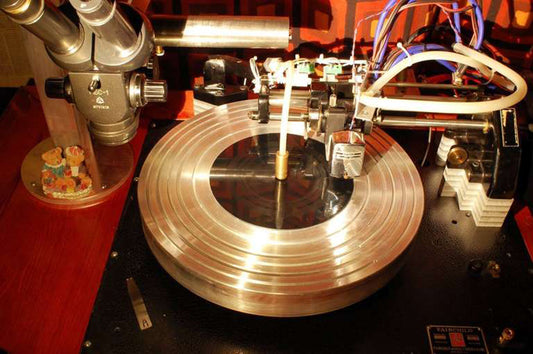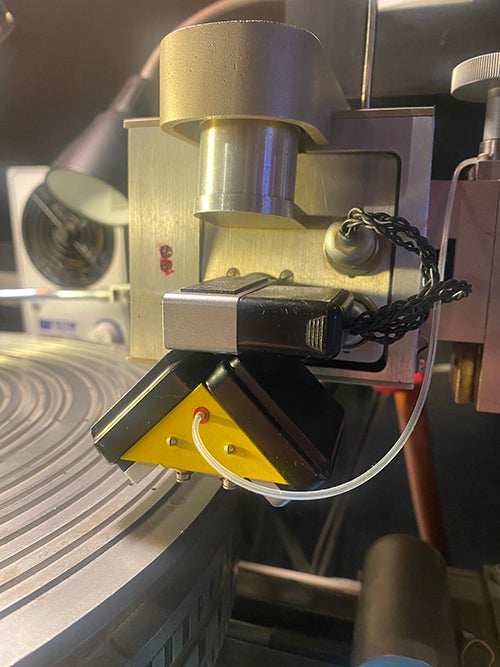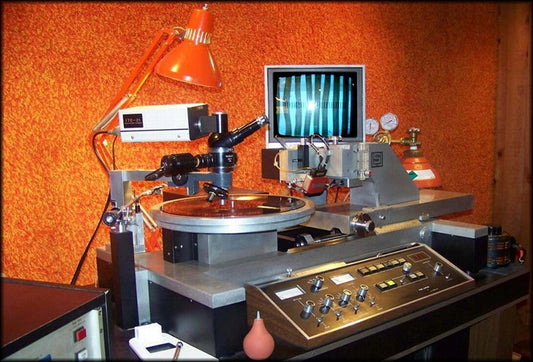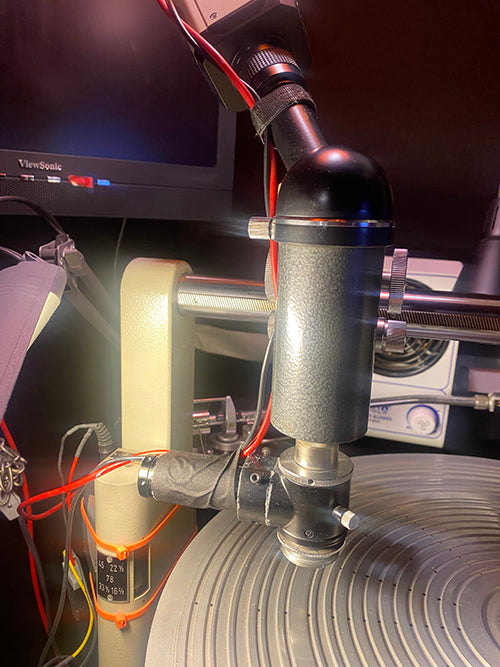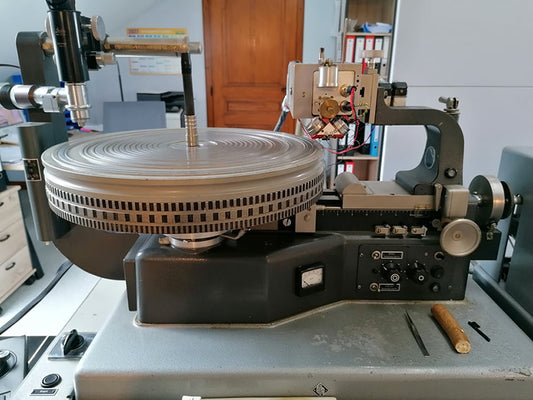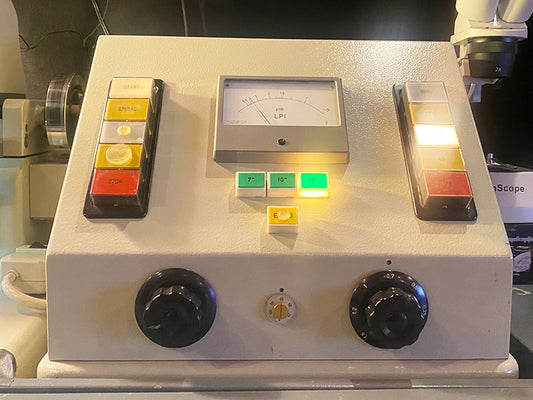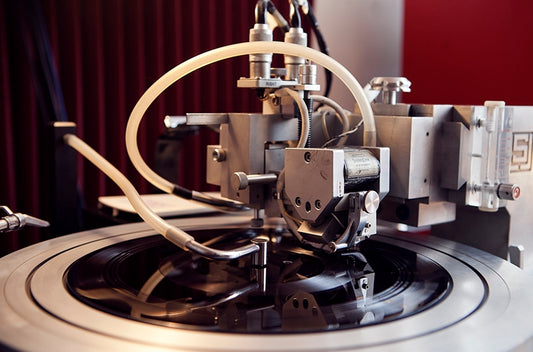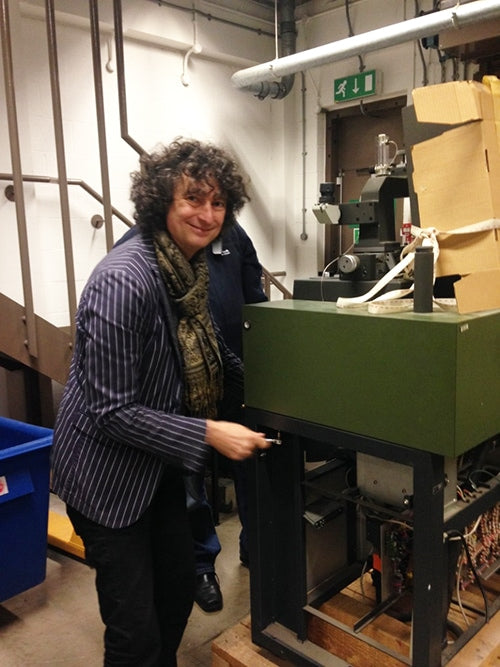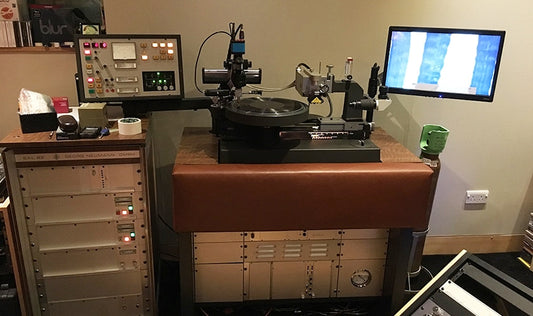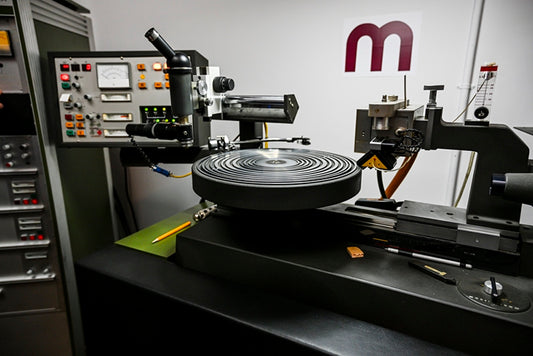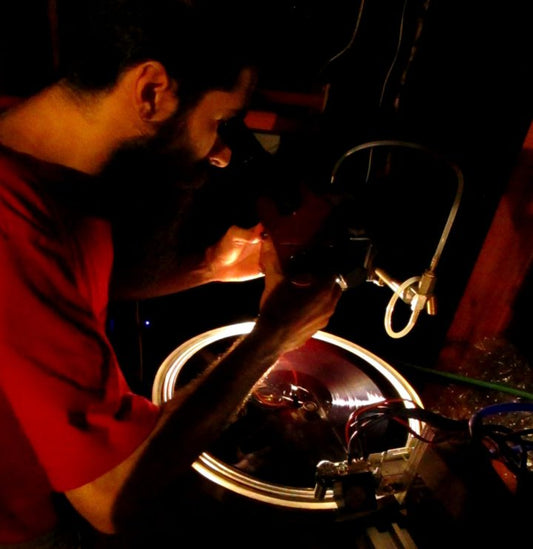Copper
How Records are Made, Part Three: Quality Control
The telephone rings. “We have a few pallets for you, can we deliver tomorrow morning?” The next morning, an 18-ton truck with a hydraulic tail lift arrives. It is July...
How Records are Made, Part Two: Plating and Pre...
The disk mastering stage, discussed in detail in Part One (Issue 198) was the last stage permitting intentional changes to the sound of the final product, for aesthetic or...
How Records Are Made, Part One: Disk Mastering
As mentioned in a previous column (Issue 197), the record manufacturing process actually begins with the composition, arrangement, performance and recording, since these will greatly influence the sound of the final product....
The Sound of Recorded Music
Different time periods in history are associated with particular architectural trends, building techniques and construction materials, different stages of technological development, as well as different styles and forms of musical...
Agnew Analog's Vacuum Tube Electrochemical Synt...
The Agnew Analog Reference Instrument Type 8001 is a unique electrochemical synthesizer, generating strange sounds through chemical reactions occurring in the built-in reactor cell. The reactions occur by passing an...
Critical Listening at Home: Audiophile High-Fid...
Meet George Vardis, a retired biologist with a master's degree in food technology, residing in Athens, Greece. George is a sophisticated man with many interests, including sailing, photography, motorbikes, and...
Pushing the Limits, Part Two
In Issue 192, J.I. Agnew began his series on the topic of signal levels, and the technical considerations in getting them recorded onto disk. The series continues here with a...
Restoring a Thorens TD160 and the Quest for Acc...
For some reason, the people involved with the manufacturing of vinyl records are rather stoic types. The rare occasion when they are in a talkative mood, they mostly talk about...
Pushing the Limits, Part One
Back in Issue 122 and Issue 123, I had gone into the concept of loudness in the articles “How Loud Is a Record” and “Eight Decades of Wrong Assumptions: the...
Restoring Vintage SME Tonearms
Over the past few years, we have restored a number of SME 3009 and 3012 tonearms, covering most of their variants made over the impressively long production life span of...
Original Vinyl Pressings or Re-pressings – How ...
Record collectors around the world will typically part with a much greater share of their hard-earned for a first pressing of an album, than for a subsequent re-pressing. But what...
Modifying a Presto 1-D Cutter Head for Better P...
Presto 1-D and 1-C cutter heads are frequently encountered on our lab bench for repair and restoration. Some are just regular repairs to bring them back to original spec, others...
Tales of Power in the Dark Ages
Back in the 1930s, the transition from purely acoustic sound recording to electrical recording and reproduction brought with it a dependency on a source of power. The electricity grid back...
Restoring and Repairing A Rek-O-Kut Model V Rec...
As with the vast majority of disk recording lathes of US manufacture, the 1956 Rek-O-Kut Model V I took upon the task of restoring was configured to spin at the...
An Audio Crime Scene Investigation
Some years ago, I purchased some rather expensive pieces of professional studio equipment from a well-known shop in Europe. One of them was handcrafted and the top of the line,...
Repairing a Westrex Record Lathe Cutter Head
Some time ago we were asked to repair a vintage Westrex 2B feedback cutter head at Agnew Analog Reference Instruments. As with all Western Electric and Westrex products, their disk...
Precise Vinyl Record Centering for Turntables
Many vinyl records are manufactured with an oversize spindle hole, and some turntables have undersized spindles. These conditions can result in pitch variation from not being able to center the...
Artificial Reverberation in the Analog World, P...
What I set out to make was essentially a character piece, something that would define recordings of suitable styles of music that were done within my own facility. It was...
Artificial Reverberation in the Analog World, P...
In the previous episode (Issue 181), we had a look at various types of analog-domain reverberation options for music production and recording. A couple of years back, during the “big...
Around the World In 80 Lathes, Part 30
Having pretty much completed our journey around the world in 80 lathes (or perhaps a bit more than 80, but anyway), today we will be visiting The Netherlands, not to...
Around the World In 80 Lathes, Part 29
The Cost of Everything and the Value of Nothing During the period from 1992 until 2002, Peter Copeland, employed by the British Library, wrote the Manual of Analogue Sound Restoration...
Around the World In 80 Lathes, Part 28
Having visited the Great British disk recording industry in our last episode (Issue 177), it is now time to ask where it all began. How did they start eating beans...
Around the World In 80 Lathes, Part 27
Following one of the usual routes taken on several of my road trips, back when I was younger and the world made a bit more sense, our visit to France,...
Around the World In 80 Lathes, Part 26
Our next destination on our lathe journey remains along the Mediterranean coast. France is highly renowned for its wine, gourmet cheese (Brie, Camembert, Comté, and countless other varieties of dairy...
Around the World In 80 Lathes, Part 25
After visiting Denmark over the last couple of episodes (Issue 174 and Issue 173), it is now time to travel to the opposite end of Europe, to the warm south,...
Around the World In 80 Lathes, Part 24
J.I. began his overview of Danish-made Lyrec record cutting lathes in Issue 173. All Lyrec disk recording lathes, from the SV-2 to the SV-10, had similar features. They were all...
Around the World In 80 Lathes, Part 23
Having visited Japan and their disk recording lathes in previous issues (see Issue 171 and Issue 170), it is now time to travel back to Europe, this time to a...
Around the World In 80 Lathes, Part 22
Over the last several episodes, we have traveled to different parts of the world to look at the different engineering cultures in different times and places, all sharing a common...
Around the World In 80 Lathes, Part 21
In the previous episode (Issue 170), we looked at the Hara disk recording lathes, manufactured in Japan in the 1970s. The Vanrock E-101 and the Atom A-101 came a bit...
Breaking News: HD Vinyl Enters Bankruptcy (and ...
Over the past 130 years or so, very little has changed in disk recording, mastering and record manufacturing. The shift from acoustic recording to electrical recording took place in the...
Around the World In 80 Lathes, Part 20
By the 1970s, disk recording had pretty much disappeared from all sectors, with the sole exception of cutting masters for the industrial manufacturing of vinyl records. Radio stations had moved...
Around the World In 80 Lathes, Part 19
Those among our readers with an interest in photography will certainly be familiar with Rollei, a company that started in 1920 in Braunschweig, Germany, manufacturing optics and photographic equipment. Even...
Around the World In 80 Lathes, Part 18
When it comes to the preservation of vintage technology, the demographics show a significant age bias. It is a rapidly aging population that is primarily interested in such things, as...
Around the World In 80 Lathes, Part 17
In the previous episode (Issue 166), we looked at the work of Flo Kaufmann of FloKaSon in Switzerland, the man who decided to preserve the Neumann disk recording legacy by keeping vintage Neumann lathes...
Around the World In 80 Lathes, Part 16
It has been quite a while since 1989, when professional disk mastering system manufacturing came to an end. To be precise, it has been 33 years, during which the world...
Around the World In 80 Lathes, Part 15
At this point in our lathe appreciation journey, I feel I should invite you to have a seat on one of my specially-designed lathe appreciation chairs, complete with straps and...
Around the World In 80 Lathes, Part 14
Previous installments discussed various design approaches to record lathe cutter heads, the history of Neumann and Scully lathes, and more. As a general rule, records cut on Neumann lathes using...
Around the World In 80 Lathes, Part 13
Previous installments discussed various design approaches to record lathe cutter heads. In terms of sound, floating record lathe cutter heads actually are at a disadvantage. The floating of the cutter...
Around the World In 80 Lathes, Part 12
In our previous episode (Issue 161), we discussed the “lightweight” category of monophonic cutter heads made from the 1930s through the 1960s. These moving-iron record-cutting heads, manufactured by RCA, Presto, Rek-O-Kut, Fairchild,...
Around the World In 80 Lathes, Part 11
Cutter heads for record-cutting lathes have come in various shapes and forms throughout the years, from the mechanically-damped moving-iron designs of the early monophonic era, to devices using oil and...
Around the World In 80 Lathes, Part Ten
Previous installments covered the earlier history of Neumann and Scully lathes. A Neumann SX-74 cutter head, with helium tub in the front. Courtesy of Greg Reierson, Rare Form Mastering, Minneapolis,...
Around the World in 80 Lathes, Part Five
In our previous episodes, we had a good look at the final generation of Neumann disk mastering systems: the VMS-80 for cutting lacquer master disks, and the VMS-82, intended for...
Around the World In 80 Lathes, Part Nine
Previous installments covered the earlier history of Neumann lathes. Neumann record-cutting lathes came with a groove inspection microscope, which slid across the platter on a monorail guide with a rack...
Around the World In 80 Lathes, Part Eight
Introduced in 1970, the Neumann VMS-70 was the result of the continued evolution of the company’s AM 31 (introduced in 1931 as the first Neumann disk recording lathe), keeping the...
Around the World in 80 Lathes, Part Seven
The last episode in this series (in Issue 156) discussed the technological and aesthetic shifts in the record cutting lathe manufacturing industry that began in the late 1970s and concluded...
Around the World in 80 Lathes, Part Six
In previous installments, this series examined Neumann disk mastering systems, with a brief look at the origin of the LJ Scully LS-76, aka “The Lathe,” in 1976. The introduction of...
Around the World in 80 Lathes, Part Four
In previous installments (Issue 151, Issue 152 and Issue 153), J.I. Agnew presented a historical overview of record-cutting lathes, and looked at some models from Neumann.) The Neumann VMS-80 lathe at Townsend Mastering, Orange...
Around the World in 80 Lathes, Part Three
In previous installments (Issue 151 and Issue 152), J.I. Agnew presented a historical overview of record-cutting lathes, and looked at some models from Neumann.) The suspension unit of the...
Around the World in 80 Lathes, Part Two
Writing about the history of disk recording lathes poses a major challenge. Not because there is not enough to say. Quite the opposite, in fact. There is an enormous amount...
Around the World in 80 Lathes, Part One
Audiophiles and record collectors often obsess about what kind of turntable or tonearm or cartridge works best for a certain record. In the process, they go to great lengths in...



